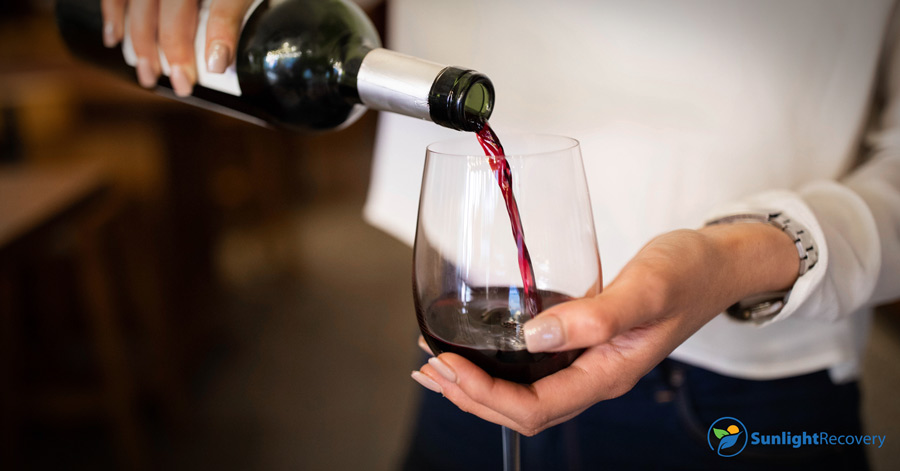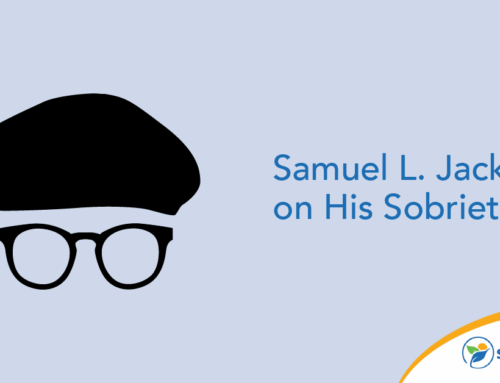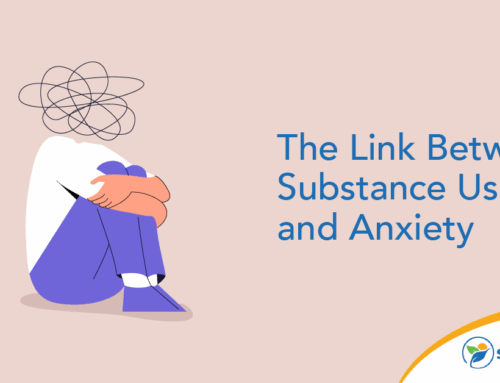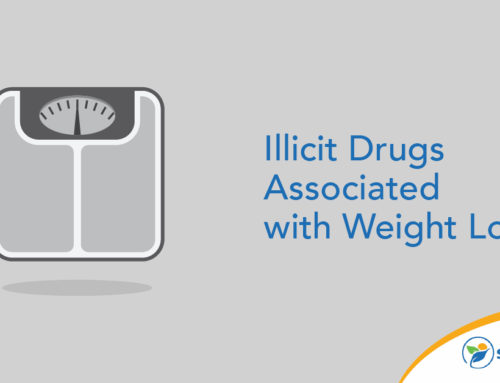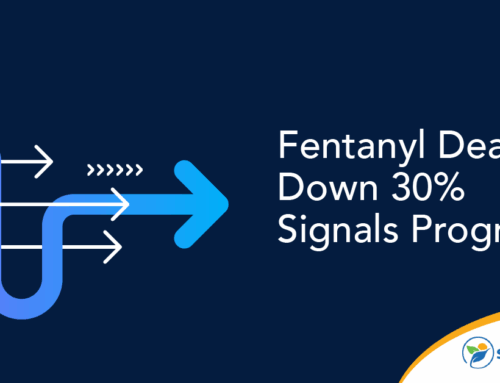What do you know about mixing alcohol and antidepressants? You may be under the impression that you can drink on SSRIs, SNRIs and MAOIs without serious effects, but in reality, there are significant risks to consider. Read on to learn more about how antidepressants and alcohol interact to negatively affect your mental and physical health.
The Effects of Antidepressants
The most common antidepressants used today are selective serotonin reputake inhibitors (SSRIs). Between 2015 and 2018, more than 13% of adults in the United States used antidepressants. Some common brands of SSRIs include:
- Lexapro
- Paxil
- Zoloft
- Prozac
SSRIs work by blocking reabsorption of the neurotransmitter serotonin, which affects mood, sleep, appetite, libido and motivation. As the medication gradually increases levels of serotonin in the brain, many people start to see an improvement in their depression or anxiety.
Another class of antidepressants commonly used today is selective norepinephrine reuptake inhibitors (SNRIs). These medications increase the levels of a different neurotransmitter, norepinephrine, which affects cognition and mood. Doctors often prescribe SNRIs to people for whom SSRIs are not as effective.
The Effects of Alcohol
Alcohol affects the levels of various neurotransmitters in the brain, including serotonin, glutamate and dopamine. Glutamate, which is particularly abundant, is responsible for “greasing the wheels” of your cognitive functioning — and when alcohol interferes with its release, it dramatically slows all the regions of your brain.
Alcohol also enhances the effects of the neurotransmitter GABA, which calms the nervous system. This is why some people experience a temporary decrease in anxiety after having a couple of drinks. Higher intakes of alcohol can cause drowsiness, loss of coordination and slurred speech.
Can You Mix Alcohol and Antidepressants?
So, can you drink on antidepressants? You can — but it won’t be fun.
Mixing an antidepressant, such as Zoloft, and alcohol can increase feelings of intoxication. When you drink on antidepressants, common symptoms of drunkenness are intensified, including impaired thinking, delayed reactions, loss of coordination and drowsiness. You might find yourself feeling unusually drunk after one or two drinks.
Doctors call the effects of taking antidepressants and alcohol together “pathological intoxication.” People suffering from this condition can become unusually aggressive or even violent. You can easily put yourself in danger or do something you regret while under the influence of antidepressants and alcohol.
The other problem with mixing alcohol and antidepressants is that alcohol prevents SSRIs from working properly. SSRIs are designed to alter your brain chemistry to alleviate anxiety and depression. Alcohol prevents SSRIs from having their intended long-term effects. You could delay or prevent your recovery from depression or anxiety by drinking while on antidepressants.
Which Antidepressants Should Not Be Taken With Alcohol?
Various types of antidepressants can be dangerous when they’re used in combination with alcohol.
SSRIs
Combining SSRIs (Prozac, Paxil, Zoloft, etc.) and alcohol could be dangerous. These medications are designed to increase the amount of serotonin in the brain over time. Drinking alcohol can cause a temporary boost in serotonin, which makes it possible for serotonin levels to rise dangerously high, resulting in a condition called serotonin syndrome.
The symptoms of serotonin syndrome are:
- Feeling agitated, restless and nervous
- High blood pressure
- Muscle twitches and spasms
- Stomach cramps, nausea, vomiting and diarrhea
If serotonin syndrome becomes severe, it can cause a fever, irregular heartbeat, seizures and even unconsciousness. Anyone experiencing these symptoms should seek emergency care.
Wellbutrin
The antidepressant medication Wellbutrin works differently to SSRIs. Instead of boosting serotonin levels, it increases levels of dopamine and norepinephrine.
Dopamine is a neurotransmitter associated with reward, pleasure and motivation. It’s naturally released in response to eating food or having sex. Many drugs stimulate the release of dopamine, which is why they can be so addictive.
Alcohol also increases dopamine levels. When you mix alcohol and Wellbutrin, the brain is flooded with dopamine. The sudden rush of this neurotransmitter can cause symptoms similar to psychosis, such as hallucinations, delusions and not being able to tell what’s real. People suffering from these effects may need to be hospitalized for treatment.
How Much Alcohol Is Too Much With Antidepressants?
According to the National Alliance on Mental Illness, drinking alcohol while taking antidepressants isn’t recommended. However, NAMI reports that some physicians endorse moderate drinking on antidepressants. Moderate drinking means no more than one drink per day for people designated female at birth or two drinks for those designated male.
If you do drink while taking antidepressants, it’s very important to stick to these guidelines. But keep in mind that alcohol can impair judgment — which means it may be safer not to drink at all.
Drinking while taking antidepressants puts a strain on the liver, which must process and break down both the alcohol and your medication. For the sake of your liver’s long-term health, you should refrain from drinking alcohol, or drink as little as possible, while taking antidepressants.
MAOIs
MAOIs, or monoamine oxidase inhibitors, were the first antidepressant ever developed. They’re still prescribed today, but not as often as SSRIs due to abundant side effects.
It’s very important to avoid alcohol if you use MAOIs. The combination of alcohol and MAOIs can cause blood pressure to rise dramatically, which can lead to a stroke. Strokes are a serious condition that can cause brain damage, long-term disability or even death.
Can You Skip a Day of Antidepressants to Drink?
Antidepressants are long-term medications that gradually change brain chemistry to improve mood. You should never skip a day of antidepressants to drink, as this undermines the ability of antidepressants to work properly. Take your medication as recommended, and reach out for help if you’re struggling with the impulse to drink.
Drinking on Antidepressants? Why You Should Seek Help
Combining alcohol and antidepressants can make you feel worse and prevent your medication from working properly. In worst-case scenarios, it can jeopardize your health in the long term.
If you find yourself mixing alcohol and antidepressants, you’re not alone. Contact Sunlight Recovery to take the first step on a path to recovery, moderate living and a balanced brain.


